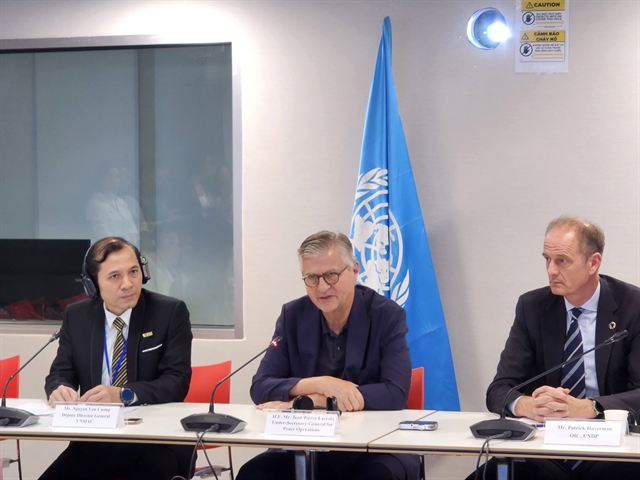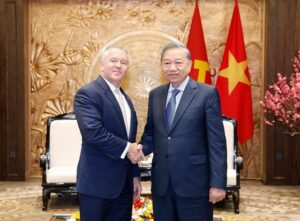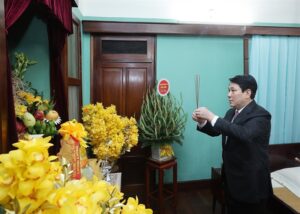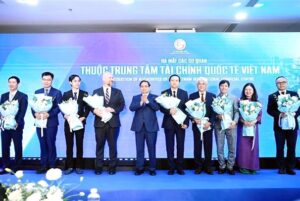UN Peace Operations Chief Praises Vietnam’s Efforts in Mine Action and Peacekeeping Contributions

Hanoi, The Gulf Observer: The United Nations Under-Secretary-General for Peace Operations, Jean-Pierre Lacroix, has commended Vietnam for its “impressive efforts” in post-war mine clearance and its active participation in UN peacekeeping missions. Speaking to the local press at the conclusion of his working visit to Vietnam, Lacroix highlighted the country as a model for integrated approaches to peacebuilding and development.
Lacroix acknowledged the significant progress Vietnam has made in addressing the extensive contamination from unexploded ordnance (UXO) left by past conflicts. However, he noted that the scope of the challenge remains immense, with more than 17 per cent of Vietnam’s territory — equivalent to approximately 5.6 million hectares — still polluted by over 800,000 explosive devices.
Nguyễn Văn Cường, Deputy Director General of the Vietnam National Mine Action Centre (VNMAC), stated that Vietnam currently clears between 40,000 and 50,000 hectares of contaminated land annually. At this rate, full clearance could take up to 180 years. To expedite the process, the government is formulating a comprehensive master plan aiming to reduce this timeline to 35–40 years. This plan includes an upcoming Ordinance on Post-War Mine Action and a National Strategy on Mine Risk Education, with the goal of achieving significant clearance to a depth of 0.5 meters by 2065.
Lacroix stressed the importance of sustained international support for Vietnam’s mine action work, highlighting contributions from the UN Development Programme (UNDP) and other global partners. “Even with the best political will and institutional framework, mine clearance requires decades of continuous effort, advocacy, and partnership,” he remarked.
Addressing concerns over reduced foreign assistance from some nations, including the United States, Lacroix acknowledged that funding constraints would affect certain projects. He called for renewed global advocacy, describing mine action as “the most non-political activity imaginable” and crucial to enabling sustainable development.
The UN official outlined key lessons from Vietnam’s experience that could benefit other conflict-affected nations: strong political will, national ownership, a robust institutional platform like VNMAC, and an integrated approach linking mine clearance to broader development goals, including agriculture, community welfare, gender equality, and climate resilience.
“Mine action is not just an enabler, but a prerequisite for sustainable development. Without removing the threat of explosive devices, efforts in education, infrastructure, and farming are severely compromised,” Lacroix emphasized.
He also praised Vietnam’s increasing contribution to UN peacekeeping operations, particularly its strong representation of women. With female personnel comprising 14–15 per cent of its peacekeeping forces — above the UN’s target levels — Vietnam aims to raise this proportion to 20 per cent by 2026–2027.
Lacroix encouraged Vietnam to continue nominating women for senior roles and to engage in qualitative improvements to make peacekeeping more inclusive. “We look forward to working with Vietnam to make the peacekeeping environment more supportive for women, both physically and psychologically,” he said.
Highlighting the broader implications of Vietnam’s role in multilateral efforts, Lacroix reaffirmed the importance of international cooperation. “The key challenges of today — whether mine action, peacekeeping, climate change, or sustainable development — are inherently transnational. The response must be multilateral,” he concluded.


